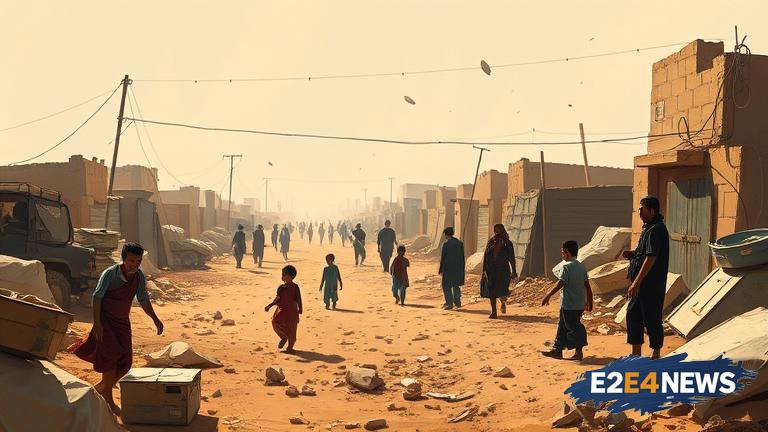The Gaza Strip, a Palestinian territory, is currently experiencing a devastating humanitarian crisis. The situation has been exacerbated by a severe shortage of food, water, and medical supplies, leading to the deaths of over 70 aid seekers. The crisis has been ongoing for several years, but the situation has significantly worsened in recent months. The Gaza Strip has been under a blockade by Israel and Egypt since 2007, which has severely limited the flow of goods and people into and out of the territory. The blockade has had a crippling effect on the economy, with high levels of unemployment and poverty. The humanitarian crisis in Gaza has been further compounded by the COVID-19 pandemic, which has put a significant strain on the territory’s already fragile healthcare system. The lack of access to basic necessities such as food, water, and healthcare has led to a significant increase in malnutrition and related health problems. The situation is particularly dire for children, who are disproportionately affected by the crisis. Many children in Gaza are suffering from stunted growth and development due to malnutrition, which can have long-term effects on their health and well-being. The crisis has also had a significant impact on the mental health of the population, with high levels of anxiety, depression, and post-traumatic stress disorder (PTSD). The international community has been criticized for its response to the crisis, with many arguing that more needs to be done to address the root causes of the problem. The United Nations has warned that the situation in Gaza is on the brink of collapse, and that urgent action is needed to prevent a humanitarian catastrophe. The crisis has also had a significant impact on the region, with many countries calling for an end to the blockade and a resolution to the Israeli-Palestinian conflict. The European Union has been a vocal critic of the blockade, and has called for an immediate end to the restrictions on the movement of goods and people. The United States has also been criticized for its role in the crisis, with many arguing that its support for Israel has contributed to the ongoing humanitarian crisis. Despite the challenges, there are many organizations and individuals working to address the crisis, including humanitarian groups, NGOs, and local communities. These efforts include providing food, water, and medical supplies, as well as supporting local businesses and initiatives. However, more needs to be done to address the root causes of the crisis, including the blockade and the ongoing conflict. The international community must come together to find a solution to the crisis, and to ensure that the people of Gaza have access to the basic necessities they need to survive. The crisis in Gaza is a complex and multifaceted issue, and it will require a comprehensive and sustained response to resolve. The situation is dire, and urgent action is needed to prevent a humanitarian catastrophe. The world cannot afford to stand by and watch as the people of Gaza suffer, and it is imperative that we take immediate action to address the crisis. The humanitarian crisis in Gaza is a stain on our collective conscience, and it is our responsibility to act. We must work together to find a solution to the crisis, and to ensure that the people of Gaza have the dignity and respect they deserve. The crisis in Gaza is a reminder of the importance of humanitarian aid and the need for a comprehensive and sustained response to address the root causes of the problem. It is our hope that the international community will come together to address the crisis, and that the people of Gaza will soon have access to the basic necessities they need to survive.



